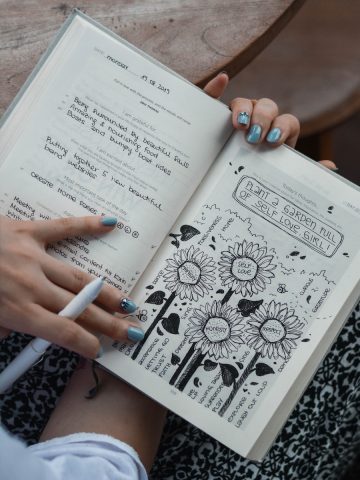How Doodling Helps You Relax in Meetings

Let’s Get Creative: How to Paint with Colored Pencils
August 18, 2021
Back to school survival Kit [Infographic]
August 31, 2021
Did you know that famous doodlers include JFK, Ernest Hemingway, Queen Victoria, Victor Hugo, JK Rowling and Hillary Clinton? Or that, quite apart from indicating a lack of attention, doodling is a great tool to help you relax and retain information in business meetings?
It’s true! Doodling has been shown to help you relax.
Not only that, doodling is also a great tool to aid concentration in meetings.
So, next time you are in a business meeting, why not ensure that you have a pen and paper to hand? This way, you can engage your brain and help yourself to relax and retain information by doodling.
Why does doodling help you to relax?
What is it about doodling that helps doodlers to relax?
Handwriting analyst Ruth Roston says, “Doodling helps relieve boredom and frustration, and the urge to doodle gets stronger as stress levels rise… it is like a safety valve that allows pressure to be dispelled in a playful and creative way.”
Others have suggested that doodling is “deep thinking in disguise”.
In the Harvard Health blog, Srini Pillay makes the point that paying continuous attention places a strain on the brain, and doodling may be just the break your brain needs to keep attending without losing total interest. Pillay says doodling, “will likely activate your brain’s ‘unfocus’ circuits, give your ‘focus’ circuits a break, and allow you to more creatively and tirelessly solve a problem at hand.”
Psychology Today contributor Cathy Malchiodi agrees. She argues, “The wonderful thing about doodling it is a full brain activity – spontaneous, at times unconscious, self-soothing, satisfying, exploratory, memory-enhancing and mindful.”
And it’s this mindfulness that creates the perfect conditions to help you relax in business meetings.
Is it acceptable to doodle in business meetings?
Not everyone is pleased when you start sketching out drawings and doodles when you should be paying attention.
Indeed, British entrepreneur Sir Richard Branson has admitted that many people look at him askance simply when he takes paper notes in business meetings.
So when Hillary Clinton was caught doodling in a UN security council meeting, she received a great deal of criticism for not paying sufficient attention from certain sections of the media (although, sadly, in this case it could be argued that this criticism was levied more because of the identity of the doodler rather than the act of doodling itself).
In fact, research shows that doodling can help you to stay engaged in meetings and retain information better. Jackie Andrade, a cognitive psychologist at the University of Plymouth, UK, believes that doodling can help people who are stuck in a boring meeting or listening to a tedious conversation prevent their minds from naturally beginning to wander.
Andrade’s study found that doodlers were better able to recall information more accurately afterwards – recalling around 29% more information – than the non-doodling control group.
It’s an interesting stat that might help your case for doodling in your next business meeting!
Want more information about doodling?
Read our blog about why you should be doodling to discover some surprising details about the doodles of US President Bill Clinton!
Or discover the joys of doodling for yourself with this guide to illustration: how to doodle.
Need more performance tips for your business meetings?
View our infographic: seven tips to avoid distraction.
Study our tips for better notetaking in meetings – it can help boost your retention of information too!



